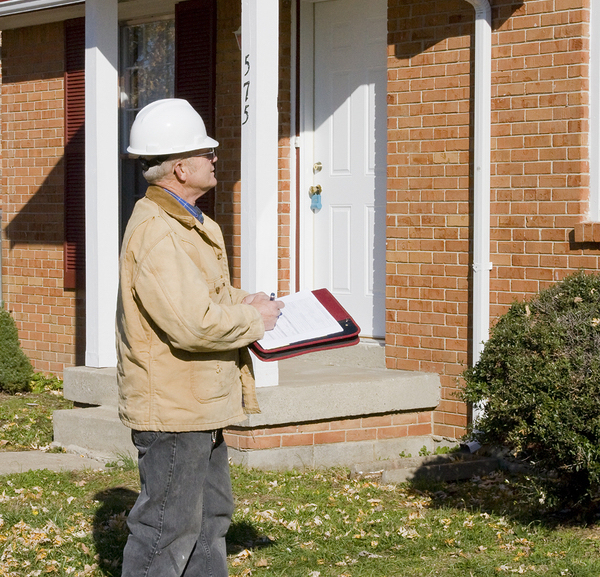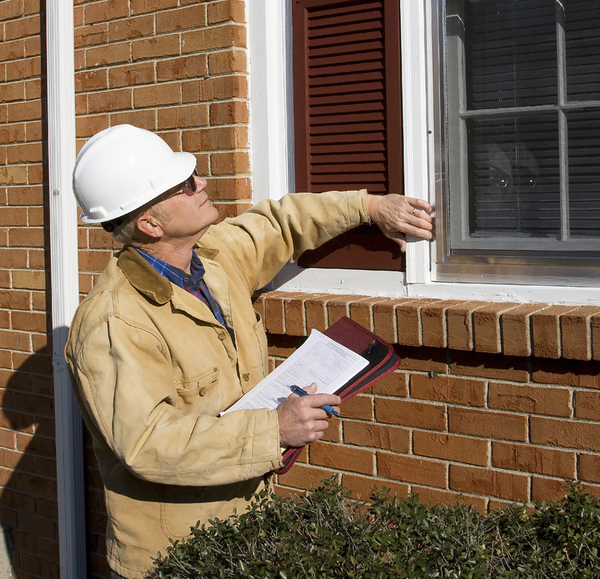
“Code” creates a hazy gray area for home inspectors and their customers. A home inspection identifies defects and dangerous conditions. The knowledge about what makes a condition hazardous is rooted in the building code, but home inspectors are not code enforcers.
The gray area creeps in where a code violation and a defect cross paths. Reuben Saltzman for Structure Tech says home inspection association Standards of Practice do not require inspectors to determine compliance. That’s a protective measure. Because inspection and code compliance are different, reporting outside the inspector’s authority puts them and you at risk.
What’s the Scope of a Home Inspection?
Hiring a home inspector can be a confusing prospect, especially with so much on your plate. Home sales are notoriously complicated. Home inspections shouldn’t be.
Your inspector will investigate the house from top to bottom, inside and out. They’ll check the electrical system, plumbing, foundation, attic, HVAC, fixtures and numerous other systems. Exceptions include what’s hidden and inaccessible, such as the flooring underneath the carpet and anything inside the walls.
Accessory systems might also be excluded, such as pools, spas, sprinklers, solar panels and security systems. Hazards and pests such as radon and termites typically require a separate inspection.
The whole purpose of the inspection is to identify defects that put your and your family at risk and give you a report that lists them. Those defects might be in direct violation of existing code. However, your inspector may never utter the word.
How Does Code Enforcement Differ From an Inspection?
Code inspections and enforcement are similar, but still different. One of the most important differences is the legal power that code enforcers carry. If a building inspector discovers a code violation, they’re empowered to issue a fine, require that owner bring it up to code and can even, in extreme cases, render a house uninhabitable.
The key is authority. Home inspectors investigate and give customers a report filled with information to use as they see fit. Code enforcers can cause action.
Unless your new home is brand new construction, it probably harbors a code violation or two. According to Devon Thorsby for U.S. News Real Estate, that’s no reason to worry. “City inspectors who check or code compliance are rarely—if ever—involved in a real estate transaction.”
If you elect to have a code enforcement official inspect the house, you might find violations that your home inspector didn’t mention. That’s normal because inspectors are separate from code enforcement. In fact, in many cases, the building inspector will not require you to make changes unless you decide to renovate.

Inspectors report all defects that affect safety and performance; the difference is in the language.
What Happens if Your Inspector Mentions a Code Violation?
More often than not, your home inspector will keep mum about code violations and refer to defects instead. That might change in the face of something they consider an enormous, glaring defect.
For example, if the home you’ve fallen in love with has extraordinarily outdated knob-and-tube wiring, even if it’s in sound working condition, which is unlikely, your inspector will probably call it a code violation in those terms.
In the majority of cases, inspectors tend to skip the code talk and stick to defects that they identify. Because oftentimes the two words represent the same thing, you shouldn’t worry about being left unprotected. The inspector’s greatest duty is to inform you about problems with the property that affect your health, safety, wellbeing and investment. Whether it’s a code violation or not, you’ll hear about it.
Some home buyers get a real shock when they learn about defects or, if the inspector mentions them, code violations. It’s virtually impossible to avoid them. Code updates happen and homeowners are decidedly not in the loop. What was legal when the house was built or last renovated might not be once the house is sold.
The bottom line is that your home inspector has your back. Whether the report calls it a defect, code violation or both, where issues that affect your safety and investment exist, your home inspector will ensure that you’re up to speed.
If you’re in the market for an inspection, we can help. Let Hire an Inspector find a home inspector near you.
